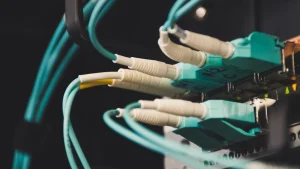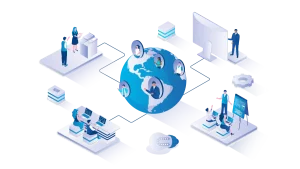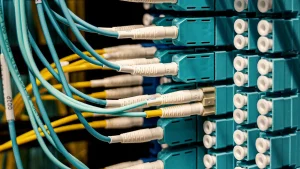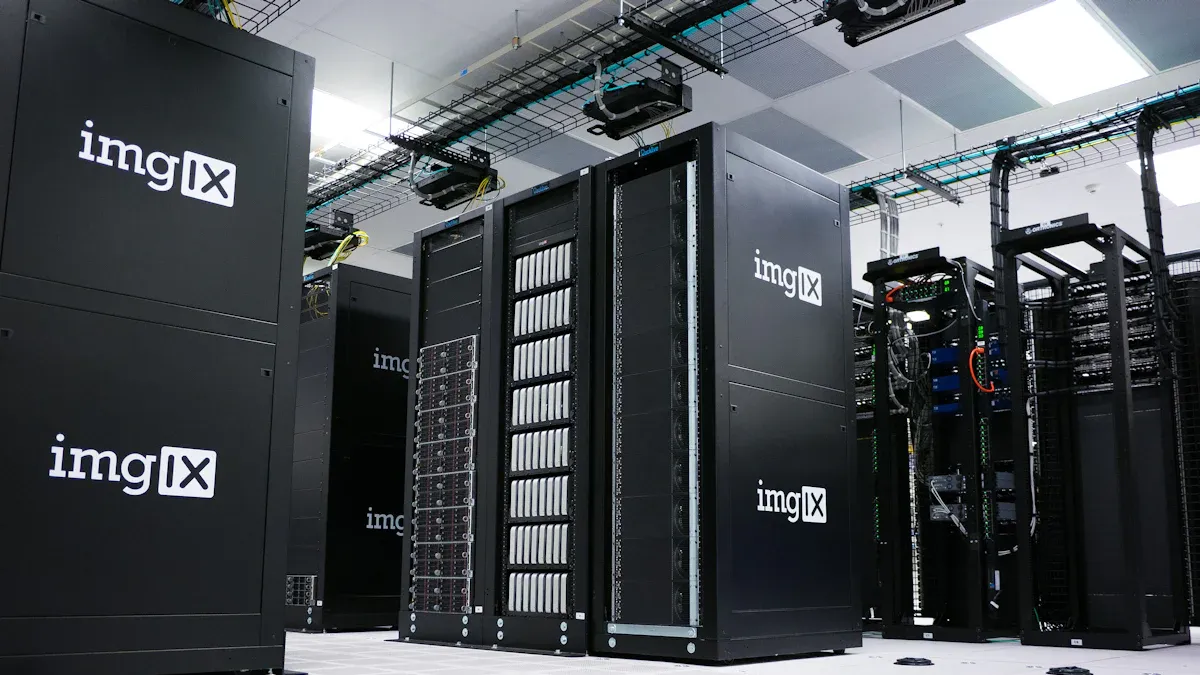
Data centers increasingly rely on advanced pdu technology to improve operational efficiency, reliability, and scalability. Leading providers deploy intelligent monitoring, remote management, and modular designs. The table below highlights adoption rates for key features shaping the market:
| Aspect | Trend Summary |
|---|---|
| Intelligent Monitoring | Rapid growth in large facilities; real-time insights enable preventive maintenance. |
| Remote Management | Essential for cloud and colocation sites; supports remote alerts and power control. |
| Modularity | Rising demand for scalable, flexible infrastructure. |
| Energy Efficiency | Regulatory focus drives up to 30% energy savings. |
| AI Integration | Emerging for predictive analytics and automation. |
| Sustainability | Regulatory and EPA guidance boost energy-saving adoption. |
Key Takeaways
- Modern PDUs use smart monitoring and remote control to boost data center efficiency and reduce downtime.
- Modular and scalable PDUs let data centers grow easily while saving costs and supporting future technology needs.
- AI-powered PDUs help predict problems, optimize energy use, and cut operational costs by up to 20%.
Why PDU Evolution Matters
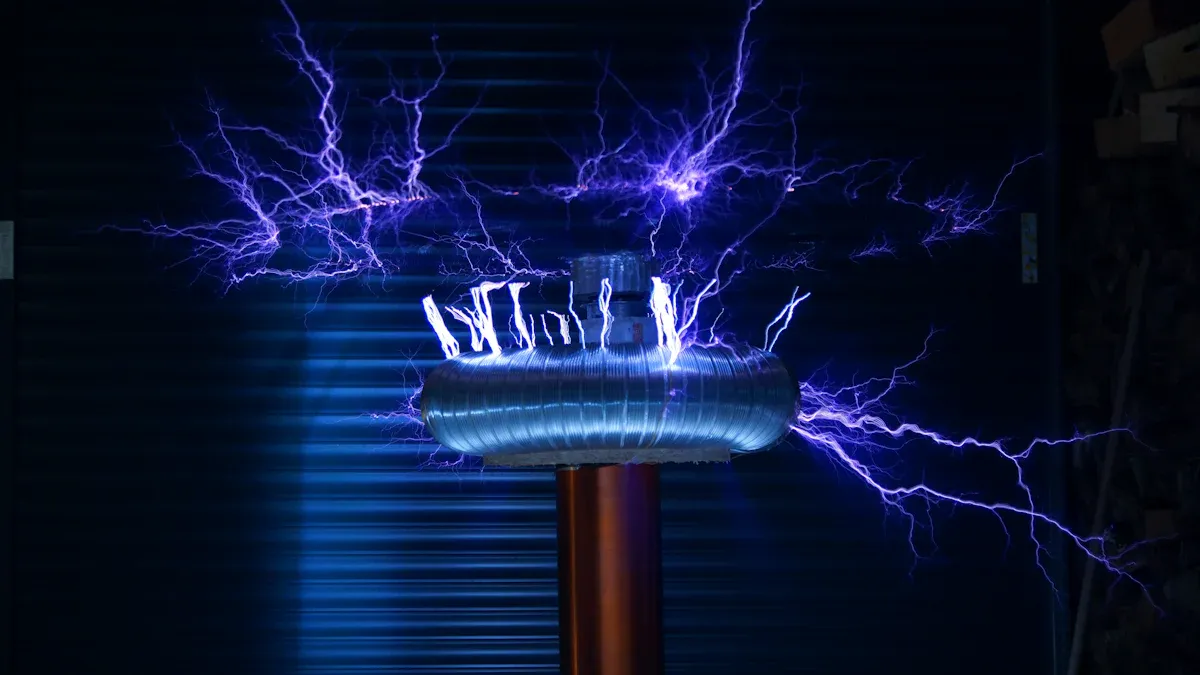
Enhancing Data Center Efficiency and Uptime
Modern data centers demand high efficiency and continuous uptime. Advanced pdu technology delivers these benefits through intelligent monitoring, real-time analytics, and remote management. Operators can track current, voltage, and power factor at the outlet level, which helps prevent overloads and optimize energy consumption. Environmental monitoring, such as temperature and humidity tracking, reduces overheating risks and extends equipment lifespan.
Studies show that intelligent power distribution lowers downtime caused by electrical imbalances and improves operational performance by about 25%. Global technology companies have achieved up to 20% energy cost reductions and improved uptime after deploying intelligent pdus. Customizable alert settings further reduce downtime by enabling quick responses to power issues.
A multinational corporation reported a 30% reduction in energy costs within the first year of implementing intelligent pdus. These features support proactive maintenance, minimize unexpected failures, and help maintain high service levels.
Enabling Scalability and Future-Readiness
Scalable pdu solutions prepare data centers for future growth and evolving technology demands. High-density pdus allow seamless expansion without major reinvestment, supporting new workloads like AI and high-performance computing. Modular designs enable rapid deployment and incremental capacity expansion, so operators can rightsize power delivery and defer large upfront investments.
Hexatronic Data Center’s checklist highlights flexible power distribution and energy efficiency as core strategies for future-proofing infrastructure. Modular pdus also support customizable configurations, ensuring compatibility with changing environments and workloads.
These innovations allow data centers to adapt quickly, maintain operational efficiency, and meet compliance requirements as technology evolves.
Key Trends in Modern PDU Technology
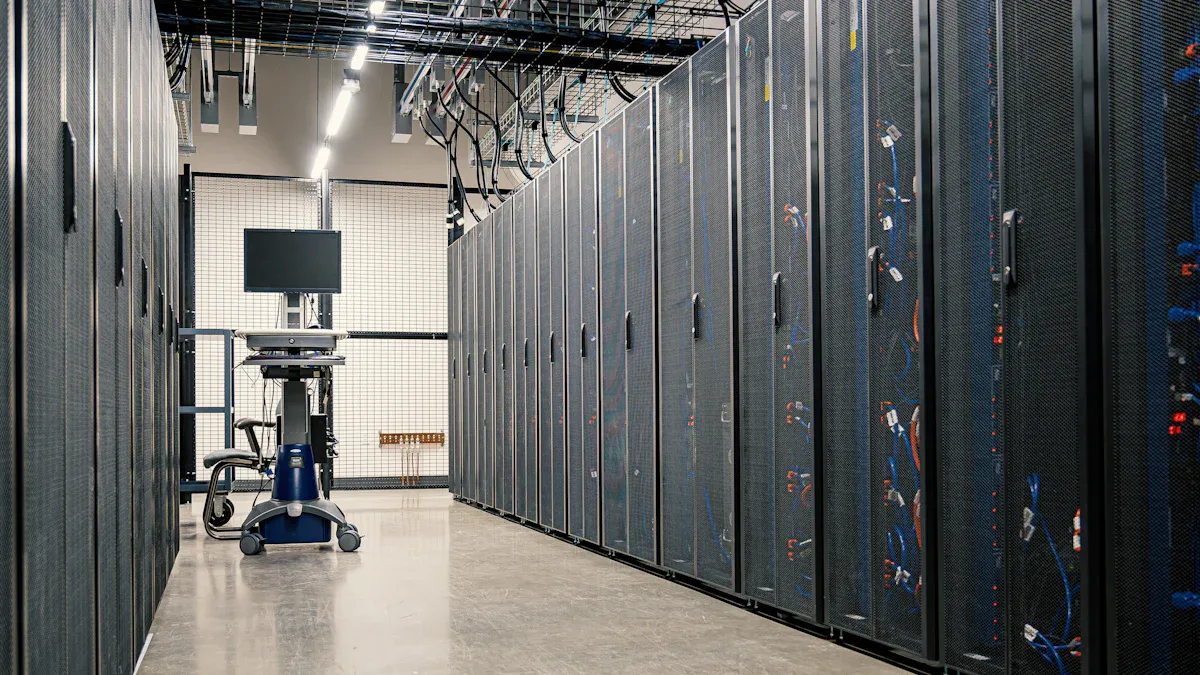
Intelligent Monitoring and Analytics
Data centers now rely on intelligent monitoring and analytics to optimize power distribution and maintain operational reliability. Modern PDUs integrate IoT technology, enabling real-time monitoring of power usage, temperature, and humidity. Smart PDUs provide insights into consumption patterns and support advanced features such as power factor correction and load balancing. These capabilities help reduce wasted energy and support proactive decision-making.
- IoT integration enables real-time tracking of environmental and power metrics.
- Smart PDUs offer remote monitoring and management for better visibility.
- Advanced analytics platforms empower dynamic operational adjustments.
- AI-driven predictive analytics and alarm systems enable rapid response to issues.
- Leading manufacturers, including Schneider Electric and Eaton, deliver modular, scalable PDUs with comprehensive monitoring and automation.
Real-time analytics and environmental sensors have led to measurable improvements in data center efficiency. Operators report annual reductions in Power Usage Effectiveness (PUE) between 0.013 and 0.018, a 5.8% decrease in cooling system energy consumption, and up to 21% lower electricity costs.
| Metric | Improvement Observed |
|---|---|
| Power Usage Effectiveness (PUE) | Annual reduction between 0.013 and 0.018 |
| Cooling System Energy Consumption | Reduced by 5.8% |
| Annual Electricity Cost | Decreased by up to 21% |
| Power Efficiency | Increased by 20% |
| Cooling Cost Savings | 10-15% savings via environmental sensors |
| Coefficient of Performance (COP) | Increased by 1.96 |
| Energy Efficiency (AI & Monitoring) | Gains of 15-20% |
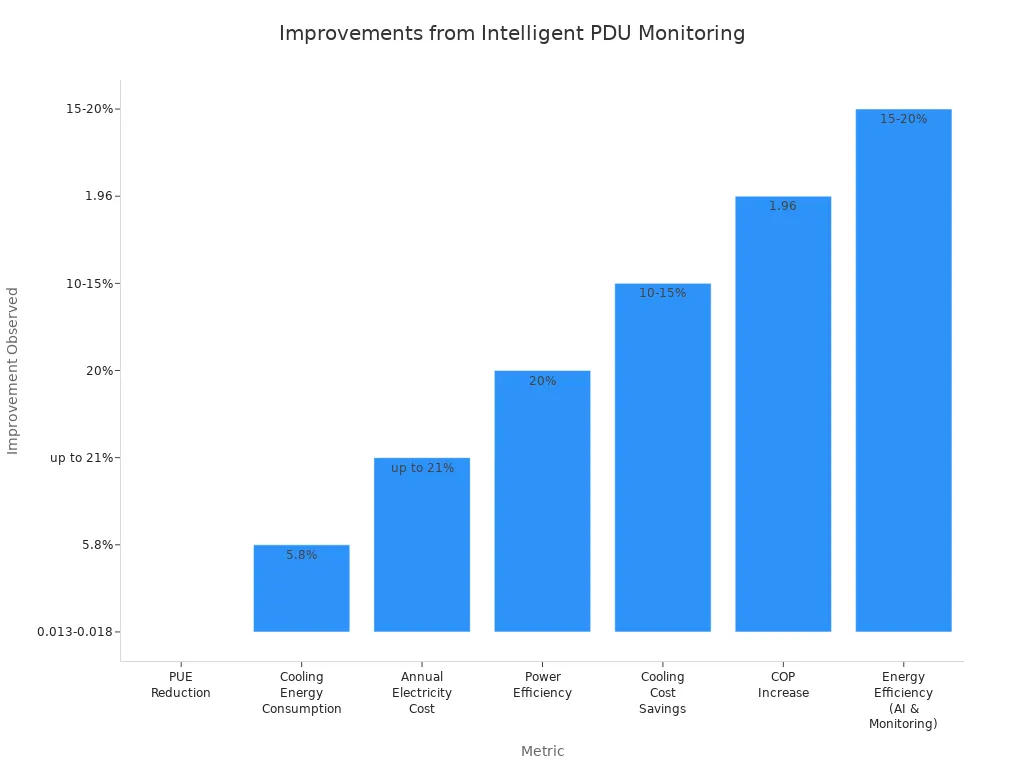
Remote Management and Control
Remote management and control have become essential for modern data centers. Smart PDUs allow administrators to monitor and manage power distribution from any location. This capability reduces the need for on-site interventions and supports rapid troubleshooting.
- Real-time remote monitoring and management improve operational efficiency.
- Detailed power metrics help track consumption trends and prevent overloads.
- Remote outlet switching enables precise control over individual devices.
- Proactive alerts and notifications support reliable operations.
- Integration with Data Center Infrastructure Management (DCIM) tools provides a comprehensive overview.
Case studies show that remote PDU management reduces maintenance time and costs. Quick responses to alarms and environmental changes minimize downtime and energy waste. Power redundancy features ensure continuous service during power fluctuations, further enhancing reliability.
Modular and Scalable PDU Designs
Modular and scalable PDU designs address the evolving needs of growing data centers. These systems allow incremental expansion and flexible adaptation to new technologies.
- Modular PDUs support expansion without full replacement, reducing upgrade costs.
- Fault tolerance ensures continued operation even if a module fails.
- Concurrent maintenance allows servicing of individual modules without interrupting the load.
- Logistics-friendly modules simplify transport and installation.
- Scalable designs reduce planning and commissioning complexity.
Managed PDUs with modular features enable facilities to expand power distribution as needed. This approach supports cost efficiency, future-proofing, and operational resilience. Certifications like ENERGY STAR and ASHRAE compliance further enhance cost-effectiveness.
Energy Efficiency and Sustainability
Energy efficiency and sustainability have become top priorities for data centers. Intelligent PDUs with real-time monitoring, remote management, and environmental sensors help optimize energy use and reduce operational costs.
Recent advancements include:
- Integration with DCIM systems for comprehensive oversight.
- Metered and monitored PDUs for remote power usage tracking.
- Switched PDUs for remote control of individual outlets.
- AI-driven analytics for forecasting and resource optimization.
Smart PDUs identify power-hungry equipment and enable load shedding during peak demand. Integration with renewable energy sources and eco-friendly designs further reduce carbon footprints.
| Statistic Description | Value/Impact |
|---|---|
| Energy consumption reduction in data centers using real-time monitoring Smart PDUs | Up to 20% reduction |
| Annual savings for a mid-sized facility adopting monitored PDUs | $50,000 |
| IBM’s reported energy savings in data centers using Smart PDUs | 30% energy savings |
| U.S. General Services Administration’s energy use reduction and savings | 41% reduction; $13.5 million annually |
| eBay’s reduction in operating costs at new data centers | 50% reduction |
| Energy consumption reduction benchmark by ASHRAE | 10-20% reduction |
AI Integration and Automation
AI integration is transforming PDU automation and predictive maintenance. Intelligent PDUs now serve as control interfaces that unify power and cooling management. Real-time data from embedded sensors enables dynamic adjustment of cooling and power distribution, reducing energy waste and extending equipment life.
- AI builds predictive models for workload forecasting and optimization.
- Machine learning detects early signs of equipment degradation, enabling proactive maintenance.
- Automation dynamically powers IT equipment on or off based on workload demands.
- Digital twin simulations allow operators to test efficiency measures virtually.
| Aspect | Description |
|---|---|
| AI & Machine Learning | Enhance predictive maintenance and energy efficiency by analyzing power usage at unit and outlet levels, enabling early anomaly detection and root cause analysis. |
| Intelligent PDUs Features | Include waveform capture, circuit breaker trip forensics, and power quality monitoring to support predictive models preventing failures. |
| Automation Benefits | Optimize load balancing, power distribution, and cooling systems, reducing downtime and energy waste. |
| Remote Monitoring | Cloud-based AI-powered solutions improve maintenance response times and operational efficiency. |
| Environmental Integration | Sensors and management software enable proactive cooling management and prevent equipment failure. |
| Capacity Planning | AI supports workload optimization and dynamic power management, contributing to sustainable data center operations. |
A data center in Asia achieved a 15% reduction in energy consumption after deploying AI-driven PDUs. A telecommunications company improved equipment uptime by 20% using intelligent PDUs with outlet-level monitoring.
Overcoming Adoption Challenges
Data centers face several challenges when adopting advanced PDU technologies. These include managing increased power density, ensuring uninterrupted power delivery, and integrating smart monitoring features. Retrofitting older infrastructure and addressing installation complexity also present obstacles.
Common solutions and best practices include:
- Using rack enclosures with integrated power distribution and cable management.
- Employing PDUs with customizable power control, active monitoring, and remote management.
- Implementing UPS systems alongside PDUs for backup power during outages.
- Adopting safe shutdown software and preconfigured systems with proactive alerts.
Education initiatives and government incentives can help overcome resistance to new technologies. Investing in advanced digital tools, such as smart apps, sensors, and IoT platforms, supports efficiency and sustainability goals.
Staying current with power distribution advancements ensures data centers remain efficient, resilient, and sustainable. Operators benefit from real-time monitoring, energy tracking, and remote management, which reduce downtime and operational costs.
- Regular energy audits and DCIM tools help identify improvement opportunities.
- Modular upgrades and capacity planning support future growth.
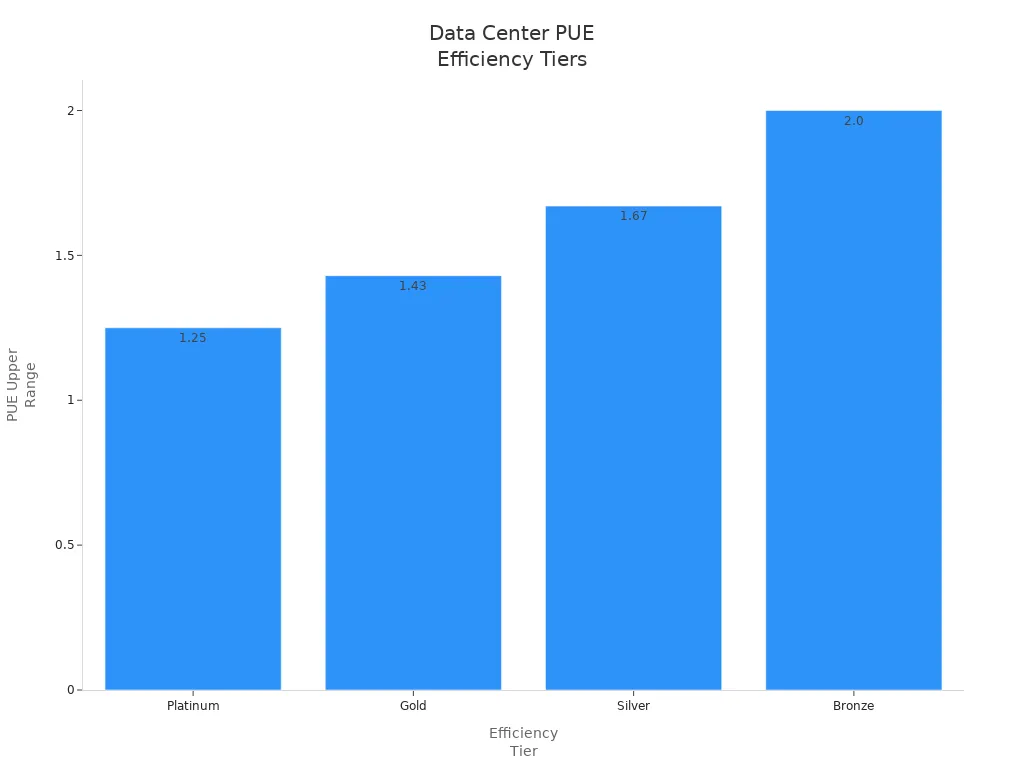
FAQ
What is a smart PDU?
A smart PDU monitors and controls power usage. It provides real-time data, remote management, and environmental monitoring. Operators use these features to improve efficiency and uptime.
How do modular PDUs benefit data centers?
Modular PDUs allow quick expansion and easy maintenance. Operators add or replace modules without downtime. This flexibility supports future growth and changing power needs.
Can AI-powered PDUs reduce operational costs?
Operators report lower energy bills with AI-powered PDUs.
- Predictive analytics optimize power use
- Automated alerts prevent costly downtime
- Energy savings reach up to 20%
